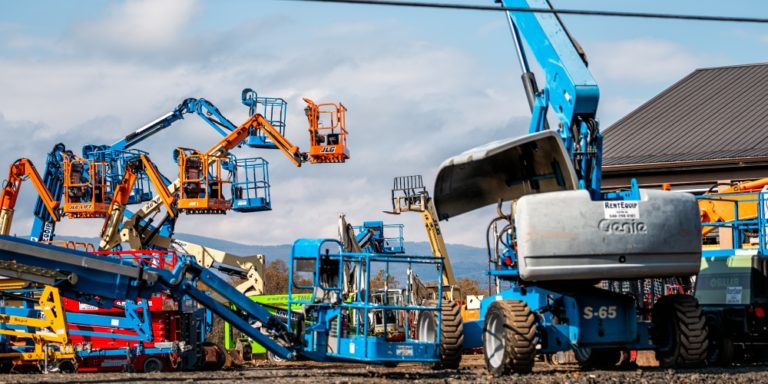— 6 min read
Contractors All Risks (CAR) Insurance – What You Need To Know
Last Updated Mar 26, 2025
Last Updated Mar 26, 2025

Every construction project faces its share of risks, which is why Contractors All Risk (CAR) insurance has become a central aspect of project protection. While it's meant to provide comprehensive coverage for your works, materials and equipment, knowing exactly what you're getting—and what you might be missing—can make all the difference in keeping your project properly protected.
Table of contents
What is CAR insurance and what does it cover?
CAR insurance covers physical damage to construction works, materials and equipment during a project. Think of it as a specialised insurance package designed specifically for construction, bringing together different types of coverage under one policy rather than requiring lots of separate policies.
The basic policy typically covers:
● Physical damage to the works themselves, whether that's new construction or renovations to existing structures
● Materials and equipment being used in the construction, including temporary site structures
● Third-party liability claims for property damage or injury that might occur during construction
● Damage to plant and machinery, whether owned or hired in for the project
One advantage of CAR insurance is that it usually covers multiple parties involved in the project, from the main contractor and employer to subcontractors and suppliers. The joint approach helps avoid potential disputes between parties when things go wrong, as everyone is covered under the same policy.
Despite its "all risks" name, however, CAR insurance doesn't actually cover everything. Some common exclusions include:
● Normal wear and tear
● Design defects (these need professional indemnity insurance)
● Poor workmanship
● Deliberate acts or negligence
● Terrorism (though this can often be added as an extension)
● Pure financial losses without physical damage
Shape the Future of the Built Environment at Procore's Construction Summit
Engage with construction leaders and discover the latest technology and best practices that are driving change across the industry.

Who needs CAR insurance?
Construction projects typically involve multiple stakeholders, and CAR insurance is relevant to most of them. The majority of standard construction contracts, like JCT and NEC4, require this type of insurance to be in place before work begins.
The Main Parties Involved
The main parties who need CAR insurance are contractors taking on construction or civil engineering projects. This ranges from builders working on residential properties to large contractors handling major infrastructure projects. Property developers and project owners often require CAR coverage too, particularly for larger developments where the financial stakes are higher.
Who arranges the policy?
When it comes to who actually takes out the policy, this depends on your contract terms. For new-build projects, either the contractor or the employer can arrange the insurance. Many contractors opt for annual policies that cover multiple projects throughout the year, as this often proves more cost-effective than taking out individual policies for each project. For larger or more complex projects, the employer might prefer to arrange a project-specific policy that's tailored to the particular risks involved.
Special Considerations for Renovation Works
For renovation works or projects involving existing structures, the situation can be more complex. Since these projects involve working on or around existing buildings, the employer (building owner) often takes responsibility for the insurance. Taking this approach makes sense when the building is already insured under a property policy, as it helps avoid any confusion about which policy covers what.
What affects the cost of CAR insurance?
A few factors influence how much you'll pay for CAR insurance. The project's overall value naturally plays a major role, but insurers also look closely at project risks like location, construction methods and site security. For instance, a project in a flood-prone area or one involving lots of work at height will typically command higher premiums than a straightforward build on stable ground.
Your track record also matters. Insurers will examine your claims history and construction management experience, as well as your approach to risk management. Having well-established safety procedures and a strong history of completing similar projects can help secure more favourable rates. They'll also consider factors like project duration, the types of materials being used and whether you're working on or near existing structures.
Understanding Joint Names Policies
A unique feature of CAR insurance is that policies are typically written in "joint names", but this doesn't mean what many people think. Unlike joint insurance (which covers identical interests, like a married couple's house insurance), CAR policies are what's known as composite insurance. In other words, the policy protects the different interests of various parties involved in the project, from contractors to employers, each with their own distinct roles and responsibilities.
An arrangement like this offers advantages for everyone involved. It creates a single pool of insurance that covers multiple parties, making claims simpler and helping avoid disputes between different contractors and subcontractors working on the same site. It also prevents insurers from trying to recover costs from other parties named in the policy after paying out a claim—a process known as subrogation—which helps maintain good working relationships between project partners.
Policy Extensions Worth Considering
While standard CAR insurance provides a good baseline protection, many projects benefit from additional coverage through policy extensions. They can help fill potential gaps in your protection and provide more comprehensive coverage for your specific project needs.
Common extensions worth considering include:
● Coverage for hired-in plant and equipment
● Professional fees for architects and surveyors following a loss
● Debris removal costs after an incident
● Extended maintenance coverage beyond project completion
● Coverage for existing structures in renovation projects
● Additional costs for express freight or overtime work to minimise delays
● Coverage for offsite storage and transit of materials
● Escalation coverage to account for inflation during longer projects
The right mix of extensions depends on your project's unique characteristics and potential hazards. While adding extensions increases your premium, the extra cost often proves worthwhile when compared to the potential financial impact of being underinsured.
It's worth discussing these options with your insurance provider early in the project planning phase to ensure you have adequate coverage from day one.
Making Claims Under a CAR Policy
When incidents occur on construction sites, knowing how to handle the claims process can make all the difference in resolving your claim quickly and successfully. Acting fast and providing the right documentation gives your insurer the information they need to manage the situation and help get the right outcome. .
Documentation and Evidence
Proper incident reporting is important when making a claim. You'll need to document exactly what happened, when it happened and what damage occurred. This includes taking photographs, gathering witness statements and keeping records of any immediate measures taken to prevent further damage or loss. Many insurers now offer digital tools to help streamline this process, but the key is ensuring all relevant information is captured and preserved.
Managing the Aftermath
After an incident, your priority should be preventing any further damage while waiting for the insurance assessor. That might mean implementing temporary security measures or protecting exposed areas from weather damage. Keep detailed records of any emergency measures taken and their costs, as these are often recoverable as part of your claim. Remember to communicate clearly with all affected parties, as good communication can help prevent misunderstandings and potential disputes later.
Getting the Right Coverage for your Project
Having proper CAR insurance is essential for any construction project. While it might seem complex at first, taking time to understand what coverage you need while making sure it's in place before work begins can save significant headaches down the line. Work closely with your insurance provider to get the right protection for your specific project needs.
Read more about the the type of contracts used in construction projects
Categories:
Tags:
Written by
Nicholas Dunbar
29 articles
Nick Dunbar oversees the creation and management of UK and Ireland educational content at Procore. Previously, he worked as a sustainability writer at the Building Research Establishment and served as a sustainability consultant within the built environment sector. Nick holds degrees in industrial sustainability and environmental sciences and lives in Camden, London.
View profileExplore more helpful resources

Construction Document Software: Essential Tools for Project Success
Construction projects depend on extensive paperwork, including designs, contracts, RFIs, and compliance records. A single misplaced document can trigger delays, disputes, or compliance violations. Despite increasing digital adoption, many teams...

Construction Planning: A Guide to Successful Project Execution
Every successful construction project begins long before the first brick is laid. Indeed, behind each structure – whether a towering skyscraper or complex infrastructure project – lies a carefully crafted...

Leveraging Analytics for Better Financial Forecasting in Construction
Financial forecasting is a difficult task in any industry. In construction, where companies need to manage volatile material costs, labour shortages and variation orders on a daily basis, fluctuations in...

Strategies to Prevent Rework: The Importance of Clear Instructions
In construction, “rework” is the dreaded process of redoing tasks due to mistakes, quality issues, or safety concerns. This unnecessary work drains budgets through wasted materials and labour while causing...